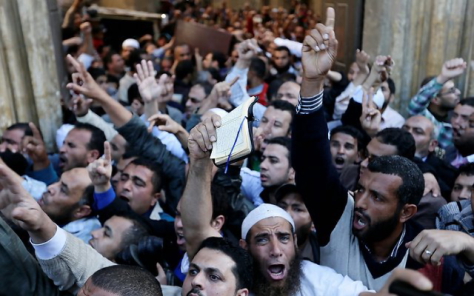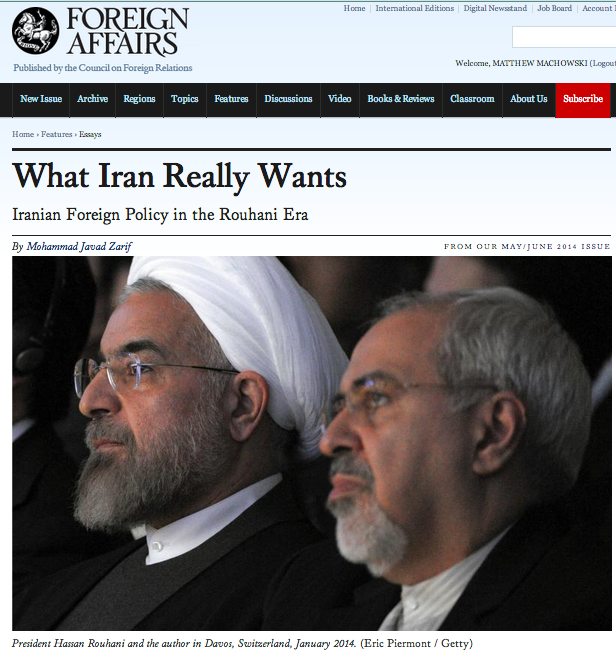The rapid and unexpected outburst of popular empowerment and democratic impulse that led to the 2011 Arab Spring constitutes the best epitomisation of mass political participation in the Middle East yet. Although popular participation is truly the cornerstone of modern democratic governance, the extent of popular involvement in the process of governance that is necessary for a genuine and efficient execution of democracy remains highly contentious. A detailed analysis of Barber’s model of participatory democracy, and its implementation in Egyptian politics demonstrates not only its opaqueness and self-contradictory character, but also indicates the absence of a convincing argument for a necessary substitution of liberal representative model of democracy.
This article has been published as:
Jan Palach, aged twenty-one, or Pochodeň č. 1 (Torch no. 1) as he is commonly known in Czech popular culture and history, gave up his life in a tragic act of self-immolation to protest the Soviet occupation of Czechoslovakia in 1969. Mohamed Bouazizi, aged twenty-six, sacrificed his life for the freedom and prosperity of his native Tunisia. The former may be seen as the initial trigger of the final collapse of the communist regimes in Eastern Europe. The latter caused an unprecedented wave of popular protest and the fall of, so far, two of the most authoritarian rulers of the Middle East. Both, however, are the perfect epitomisation of popular empowerment and democratic impulse that springs eternally, even in the face of the most forbidding circumstances” and leads to political transformation theretofore unimaginable.

It is in the face of these events that is perhaps the best time yet to analyse Benjamin Barber’s contribution to a wider democratic theory and the examples thereof in Egyptian politics. Political participation, even through such extreme and tragic suicidal acts, is no mere fantasy. Neither is it simply an ideological utopianism. Participation, in one way or another, is truly the cornerstone of modern democratic governance.[1] It is, indeed, this ‘peoples power’, still so vividly present on the Tahrir Squares in Cairo and Sana’a, the Pearl Roundabout in Manama or on the streets of Benghazi, Baidah and Tobruk that reminds us that even the most totalitarian, fierce regimes will once fall.[2] However, the extent of popular involvement in the process of governance that is necessary for genuine and efficient execution of democracy remains highly contentious. Barber, greatly disappointed with the Western liberal democracy of ‘60s and ‘70s, questions many of the fundamental conceptual constituents of the most predominant political system of our times. His examination of democracy still holds significant value for a more detailed and well-informed understanding of recent events in the region.
This article, therefore, aims to critically assess Barber’s notion of ‘strong democracy’, thereby indicating its potential philosophical and practical merits and limits. The author attempts to test the above theoretical framework with relation to recent activities of Egyptian social and political movements that aim to establish a form of Islamic regime, and their competitors. A detailed analysis of various aspects of Barber’s participatory democracy, and its implementation in Egyptian politics of the late twentieth and early twenty-first century, will demonstrate that his model proves to be not only opaque, or self-contradictory at times, but also does not provide a convincing argument for a necessary substitution of liberal representative model of democracy. In fact, the internal dynamics of movements such as the Muslim Brotherhood and other civil society groups indicate a number of grave dangers to democratic freedom, equality and civil rights that are associated with the participatory model of democracy. Although a considerable extension of political participation is highly conducive to the creation of stronger and healthier democratic regimes, it does not dispose of the demand for political representation but instead should rather further supplement it.
Barber’s strong democracy “as politics in the participatory mode”[3] will be initially introduced as a panacea for persistent democratic deficits of liberal democracy, and a truly Rousseauian counterargument to Schumpeterian elective oligarchy.[4] Following Fuchs analysis, strong democracy will be then presented as a purely normative model comfortably comparable to both Habermas’ ‘discoursive democracy’, and Cohen and Sabel’s ‘directly-deliberative polyarchy’.[5] Finally, the focus of this article will shift to a number or potential limitations of this framework and a careful exegesis of both empirical and historical evidence thereof in Egyptian politics.
Although the extent of democracy in Egypt under President Hosni Mubarak is clearly very disputed, it can still be argued that modern Egypt since 1953 has been officially a ‘republic’ organised under a multi-party semi-presidential system. The interest of the general public has since been represented by directly elected members of the People’s Assembly, and a president chosen in a unique two-stage electoral process as prescribed by the 1971 Egyptian Constitution and its later amendments. Despite numerous internal contradictions and flaws, this system can quite comfortably be described as a representative model of governance.
Representative democracies are quite common all throughout the world. However, their actual democratic value remains disputed, with Egypt being a clear case thereof. Barber’s strong democracy is primarily a response to what he believed was a transparent democratic deficit of liberal democracy. He argues that the liberal representative principle is “incompatible with freedom,” “steals from individuals the ultimate responsibility for their values, beliefs, and actions”, and as a result “produces distrustful, passive citizens.”[6]
Amy Gutmann remarks that Barber, along with other participationists such as Pateman, Mansbridge, Cohen and Sabel, argue that liberalism is “mistakenly and irreparably individualistic.”[7] It is, indeed, this conceptual framework constructed around the inalienable rights and liberties of an individual within a political society that, in his opinion, leads to “the unquestioned dominance of particular interests in politics, which in the long run erode the foundations of the democratic process itself,” as noted by Fuchs.[8] Barber notes that liberal democracy’s “conception of the individual and of individual’s interest undermines the democratic practices upon which both individuals and their interests depend.”[9]
As a panacea to this predicament he argues for greater participation in the political process and a fundamental realignment of governance around wider citizen involvement in the decision-making process.[10] His critique of liberal democracy remains however, not only “ultimately unconvincing,” as argued by Waligorski, but is also underlined by a questionable understanding of liberalism.[11] A careful examination of Barber’s argument indicates that he fails to persuasively raze the liberal democracy and instead ends reorienting it around greater popular and communal engagement.[12]
Analysts of the participatory democratic theory commonly agree that participationists’ objections to representative democracy appeal to the works of Jean-Jacques Rousseau.[13] Hadari remarks, “Not only is Rousseau quoted, invoked, or alluded to repeatedly throughout the discussion of ‘strong democracy’, but also, unsurprisingly, the argument falters on the same old stumbling blocks,” which will be further discussed in details hereafter.[14] It is however, imperative for our understanding to note that participationists’ displeasure with representation reiterates Rousseauian idea that sovereignty “cannot be represented.”[15]
Barber is commonly understood to be a proponent of participatory democracy. He has numerously argued however, to be a proponent of a ‘third way option’, thus somehow distancing himself from other participationists. Unlike Mansbridge who advances a bipolar distinction between direct and adversarial democracy, Barber offers a three-way distinction between 1) ‘thin’, representative democracy of the Schumpeterian model, where citizenship is barely a matter of the existant legal system, and the society acts upon individual particular interest in a process of political bargaining; and 2) ‘thick’, direct, or ‘unitary democracy’, in which “politics involves self-abnegating submission to the group,” as noted by Cunningham; and finally 3) his very own ‘strong democracy’ that allows the individuals to preserve their autonomy but at the same time transforms them in such a way that facilitates the pursuit of common good.[16] The main argument of his thesis, in spite of all its vagueness and nebulosity, advances that “critics mistakenly assume that participatory democracy must be of the unitary variety.”[17] Although he attempts to present his participatory democracy as totally independent of the direct unitary model, some of his theoretical proposals fall short of a decisive break therefrom.[18]
Despite the possibility of a slight normative confusion as to the actual categorisation of Barber’s strong democracy, his theory certainly falls under the overarching normative umbrella of participatory democracy.[19] It is therefore, contentedly analogised to Habermas’ discoursive democracy, or Cohen and Sabel’s directly-deliberative polyarchy. All three frameworks draw directness of participation and deliberation in political opinion formation as their focal points. Although the finite details of their theories may vary, they all agree upon the need to replace existing liberal democracy with a more participatory and deliberative model. Cohen and Sabel argue that participatory democracy is “desirable both in itself and as a problem solver“ of liberal democracy.[20] This theory suggests that not only do people need to directly participate in the decision-making process, but also that this process should be more than just a bargaining exercise, where individual interests are necessarily incompatible with each other. The educational or the ‘transformational’, as Barber would rather put it, aspect of democracy appears central to the success of this model. This then leads us to the first potential limitation of this mode of governance.
The above models of participatory democracy all require an extent of popular engagement in politics. It has been indicated above that the actual degree of participation remains however disputed. Detailed analysis of Barber’s strong participatory democracy reveals that a healthy democratic process relies upon two necessary and vital requirements: publicness of deliberation and the absence of an independent ground.[21] The actual application of these conditions uncovers the first verifiable limitations of this theory.
Popular social disparity is perhaps one of the more characteristic attributes of modern capitalist societies, including that of Egypt. It takes on a range of different forms. From literacy, through economic wellbeing, or social class provisions, to the ease of access to adequate healthcare, or the extent of one’s connectedness with the outer world. Although strong democracy is hostile to “reductive historical sociology that makes an individual’s class or race or social movement the sole determinant of his actions,”[22] it remains ahistorical and idealistic in its neglect of political-economic connections.[23] Barber, rather foolishly, believes that universal political participation will create a level-playing field and solve the problem of economic power.[24] Simon rightly then argues, “Participatory disparity saps the strength from strong democracy.”[25]
 |
| Benjamin Barber |
The extent of people’s access to power is clearly dependent on their economic position. This is all too clear on the streets of Cairo, Alexandria or Luxor. The poor masses of Egyptians, at least till the beginning of the Revolution of 25th Feb 2011, have had hardly any access to, or influence over the political decision-making process. Egypt’s representative model of governance through parliamentarians and local officials is totally ridden with nepotism and corruption. Zubaida indicates, “The dominant government party is no more than a vehicle of loyalty and patronage for the President and the political directorate.”[26] Although the Muslim Brothers, the first Islamic socio-political movement mobilising followers at a popular level through a network of charities, services, clubs or employment agencies, does ideally aim at universal participation, it also faces this economic power dilemma.[27] In fact, its limited membership among certain socioeconomic classes is perhaps one of the indicators of such dynamic. Ibrahim notes that the movement is “generally urban based, drawing heavily on the lower middle and middle classes … university graduates and young professionals.”[28] It is possibly this realisation of the economic/political disparity that informs the Brotherhood’s emphasis on the urban, educated, and professional middle classes. They are simply believed to be more politically influential than the poor rural communities. Interestingly similar dynamics prevented the very poor from active participation in the latest demonstrations. Some people live on a day-to-day basis in Egypt and were not able to lose even a one-day’s income, a message recurrent on various media reports.
Participatory disparity and the absence of a level-playing field feed into another fundamental limit of any participatory democracy. Barber and others commonly perceive liberal democracy as a form of oligarchy, meritocracy, or some other form of rule by the few. The idea of reforming liberal democratic system of governance revolves around striking a new balance between popular participation and leadership. Enhancing popular political engagement may however, bring about two dangerous and barely democratic outcomes: tyranny of the majority, or tyranny of the activists. Barber generally follows Rousseau in his optimistic approach to human nature and the people’s universal drive towards the establishment of common good that would preclude the attacks on people’s inalienable rights.
However, it is all too easy to imagine the possibility of enhanced participation leading to populist majoritarian tyranny. Advanced participationism may lead, as noted by Gutman, to situations in which “local majorities ban … activities in the name of preserving their community’s way of life and the values that sustain it.”[29] This may indeed have very non-democratic consequences. History of Egyptian civil society provides a good example of such eventualities. It was arguably due to the rise of socially restrictive Islamic movements in Egypt that “pushed middle-class women to organize themselves in opposition to these socially restrictive goals,” and form, sometimes quite forceful, feminist movements, as noted by Hatem and Al-Ali.[30]
 |
| Credits: The Washington Times |
Moreover, political participation often does not come easy. It may be a very troublesome, time-consuming and difficult process. “What a suffocating sense of responsibility, what a plethora of virtue would be necessary to sustain the participation of everybody all the time!,” writes Walzer,[31] only to later express a very viable argument that most of us would actually go to great lengths in order to avoid Malvin Tomim’s “merciless masochism of community-minded and self-regulating men and women.”[32] Such actions of a larger group of popular legislators may lead to the rule of activists or “the men with the most evenings to spare.”[33] All of Egypt’s civil movements, perhaps apart from the recent ‘people’s power movement of 2011 revolution’, retain a very distinct culture of leadership. Al Takfir w’al-Hijra serves as a very good case of that for the movement maintains a particular tradition of reverence towards the leader.[34]
Both of the above remarks of Walzer and Tomim refer to a common political apathy or the ‘anomic democracy’, as advanced by Crozier and Huntington.[35] It is a common space now that large groups of people are at least discouraged or even totally sceptic of their role in governance and opt for political non-attendance. Barber argues that people are “apathetic because they are powerless, not powerless because they are apathetic.”[36] Overcoming this feeling and maximising civil engagement is certainly the main task of active participationists.[37] Barber argues that it is the process of participation itself that will encourage and educate people to take more responsibility for themselves and their political systems.[38] However, Richardson, quite rightly, notes that the educational aspect of participation can be also dangerous.[39]
Here again, participationism tends to reinforce Rousseau’s philosophy that people can be forced to be free. Barber argues, “men and women who are not directly responsible through common deliberation, common decision, and common action for the policies that determine their common lives are not really free at all.”[40] It is, in fact, this process of transformation of “dependent, public individuals into free citizens” that is a fundamental characteristic of a strong democracy.[41] A very powerful approach to citizenship as a primary good of the individual, even paramount to individual’s rights, is maintained. Waligorski argues, that Barber’s “citizenship is the primary human activity, having ‘lexical priority to all social activities’.”[42] This approach is at least democratically problematic, if not even dangerous to advance. Requiring or forcing people to participate and to govern themselves is not compatible with a free democratic society.[43] Even the recent events in Cairo prove that some people will opt out from political participation and choose not to engage politically.
Barber’s self-contradictory approach to leadership remains the most disturbing deficiency of his theory. Although he advances the enhanced civic engagement, he also realises its dangers. Despite being at times highly critical of political leadership and representation, he nonetheless recognises a need for ‘transitional leadership’, as noted by Hadari.[44] “Actual participatory systems,” argues Barber, “are clearly burdened with the need for leadership,” thus self-contradicting some of his earlier statements.[45] Moreover, quite surprisingly at that, he advances in his later essay on citizenship a set of forms of leadership that are supposedly compatible with his democracy. One of them is particularly troubling – ‘moral leadership’, as it clearly correlates to a specific, yet undefined by him, ideology or a set of moral values.
Strong participatory democracy, as presented by Barber, operates in the absence of an independent ground.[46] Although political movements cannot remain totally value-free, they are required here to provide for a common deliberative ground and lead to establishment of policies that spring from the public discoursive participation rather than any preconceived agendas. The role of ideology or a systems of morality in the political process seems to be called into question here. Barber argues that “substantive value judgements flow from, rather than precede, the participatory political process of a strong democracy.”[47] At this time one should credit Barber for reminding many authoritarians, certainly of the Mubarak’s kind that claim to aim for democracy once a substantive level of equality, justice or political culture is established, that these are not “the conditions of democracy,” but instead it is democracy itself that is “the condition for equality and justice.”[48]
 |
| Sayyid Qutb and Hassan al-Banna |
However, it is rather ideological in itself and perhaps too naïve an argument to suggest that large political mass movements are capable of operating in the absence of an independent ground. Indeed, it is often a common ideology or a political preference that draw people to organise in groups. These associations then often represent a particular understanding of political reality and interests of the society that may prove at least restrictive. Civil movements that aim for the establishment of Islamic regime in Egypt are a very good example of such dynamic. Both the moderate organisations, such as the Muslim Brotherhood, and the more radical and violent ones, such as Jihad, Al Takfir w’al-Hijra or Gama’at Islamiyya, stem from the same ideological background of political philosophies of Sayyid Qutb and Hassan Al-Banna. Qutb believes that political participation and activism must entail and flow from the religious beliefs of the Muslim society.[49] His critique, of what he calls the Egyptian jahiliyya, quite clearly refers to the secular, non-religious rule in Egypt. Therefore, it becomes transparent that both the actual establishment of Islamic rule in the country and the activities of those groups themselves remain very reductionist in nature and preclude non-Muslim or secular fragments of society from political participation. This overtone could quite easily be heard in the actions of Western government fearing the potential rise to power of the Muslim Brothers post the 2011 revolution.[50]
“Islamist attempts to re-Islamise society and politics” through the establishment of movements such as the Muslim Brotherhood or the Gama’at Islamiyya as advanced by Kenney, have certainly widened the spectrum of political participation in Egypt.[51] Their lack of universal approach, limited membership rules, restrictive recruitment tactics and a clearly ideological agenda not only suggest that these groups have not succeeded to attain a form of truly participatory democracy, but also indicate some interesting limitations of Barber’s participatory model.
Barber’s theory has certainly made a considerable impact on the evolution of wider democratic theory. He successfully highlights some limitations of the liberal theory, particularly its limited universal access to governance in a representative democracy. Participationists rightly remind us of the need to actively engage citizens in the process of decision-making. “Self-government is an important human function, an exercise of significant talents and energies, and the sense of power and responsibility it brings is enormously healthy,” Walzer concludes.[52] Some of their policy solutions, such as the use of modern communication technology, more frequent use of referendums or the system of universal national service seem very viable forms of enhancing the feeling of citizenship among people. However, it becomes clear in this analysis that a degree of leadership and representation may however, successfully mollify the effect of participatory democratic excesses and ease the danger of replacing liberal democracy, a not-very-democratic system in Barber’s eyes, with a system that is neither immune to the totalitarian and non-democratic menace. Both the empirical experiences of civil movements in Egypt and a careful consideration of theoretical implications of Barber’s strong democracy indicate that “participatory democracy has to be paralleled by representative democracy,” not replaced by it.[53]
Matthew Machowski © 2011
[1] Following Arendt, Barber, and Pateman, A. Lijphart argues that “participation is not regarded mainly as a representational instrument but as an intrinsic democratic good.” See: A. Lijphart, „Unequal Participation Democracy’s Unresolved Dilemma: Presidential Address, American Political Science Association, 1996,“ American Political Science Review (American Political Science Association) vol. 91, no. 1 (March 1997): 1.
[2] For various reports on the current political turmoil in the region see: BBC World, BBC News: Middle East Protests, 19 February 2011, http://www.bbc.co.uk/news/world-middle-east-12480844 (accessed February 19, 2011); The Economist, The Arab World: The Awakening, 17 February 2011, http://www.economist.com/node/18180416 (accessed February 18, 2011); or: Al Jazeera English, Egypt’s Revolution, 18 February 2011, http://english.aljazeera.net/indepth/spotlight/anger-in-egypt/ (accessed February 18, 2011).
[3] B. R. Barber, Strong Democracy: Participatory Politics for a New Age, 20th Anniversary Edition (Berkeley and Los Angeles: University of California Press, 2003), 132.
[4] B. R. Barber, „Neither Leader nor Followers: Citizenship under Strong Democracy,“ in A Passion for Democracy: American Essays, 95-110 (Princeton, New Jersey: Princeton University Press, 1998), 98-9.
[5] D. Fuchs, „Models of Democracy: Participatory, Liberal and Electronic Democracy,“ Workshop 22: “Bringing Citizens Back in – Participatory Democracy and Political Participation” (Edinburgh: ECPR Joint Sessions of Workshops, 28. March 2003), 16.
[6] Barber 2003, op. cit., 146, 145, 219.
[7] A. Gutmann, „Review: Communitarian Critics of Liberalism,“ Philosophy and Public Affairs (Blackwell Publishing) vol. 14, no. 3 (Summer 1985), 308. See: C. Pateman, The Problem of Political Obligation: A Critique of Liberal Theory (Berkeley and Los Angeles: University of California Press, 1985); J. J. Mansbridge, Beyond Adversary Democracy (Chicago and London: The University of Chicago Press, 1983); J. Cohen and C. Sabel, „Directly-Deliberative Polyarchy,“ European Law Journal: Review of European Law in Context vol. 3, no. 4 (December 1997): 313–342;
[8] Fuchs, op. cit., 6-17.
[9] Barber 2003, op. cit., 4.
[10] G. Perry and G. Moyser, „More Participation, More Democracy?,“ in Defining and Measuring Democracy, editor D. Beetham (London: Sage, 1994), 44.
[11] C. P. Waligorski, „Review of ‘Strong Democracy: Participatory Politics for a New Age’ by Benjamin Barber,“ The Journal of Politics (Cambridge University Press) vol. 48, no. 1 (1986): 229. Waligorski notes that Barber mistakenly searches for examples of liberal flaws in the writings of such barely liberal thinkers as Hobbes, Lippmann, Machiavelli, Marx, Lenin, Shelley or Nietsche. Consecutively he omits readings of Green, Brandeis, Galbraith, Keynes or J.S. Mill. For details see: ibid., 230.
[12] Gutmann 1985, op. cit., 308; and Barber 2003, op. cit., 308.
[13] F. Cunnigham, Theories of Democracy: A Critical Introduction (London and New York: Routledge, 2002), 123.
[14] S. A. Hadari, „Review of ‘Strong Democracy: Participatory Politics for a New Age’ by Benjamin Barber,“ Ethics (The University of Chicago Press) vol. 95, no. 4 (1985): 940.
[15] JJ. Rousseau, The Social Contract, editor G. D. H. Cole (New York: Cosimo Books, 2008), 94, II. xv.
[16] Cunnigham 2002, op. cit., 130-133. The pursuit of ‘common good‘ is only too vividly a reminder of Rousseauian origins of this framework.
[17] ibid.
[18] Hadari would dispute this statement, as he argues that strong democracy is “not only the sole fully legitimate regime but also the sole viable democratic one.” See: Hadari 1985, op. cit., 940.
[19] This paragraph follows Fuchs examination of participatory democratic theory. See: Fuchs 2003, op. cit.
[20] Cohen and Sabel 1997, op. cit., 314.
[21] Barber 2003, op. cit., 133-134.
[22] M. Parenti, „Review of ‘Strong Democracy: Participatory Politics for a New Age’ by Benjamin Barber,“ Political Science Quarterly (The Academy of Political Science) vol. 100, no. 2 (Summer 1985): 328.
[23] ibid.
[24] Waligorski 1986, op. cit., 231.
[25] T. W. Simon, “The Theoretical Marginalization of the Disadvantaged: A Liberal/Communitarian Failing,” in Communitarianism Debate: Liberty and Community Values, ed. C. F. Delaney, (Lanham, Maryland: Roman & Littlefield Publishers, Inc., 1994), 122-123.
[26] S. Zubaida, „Trajectories of Political Islam: Egypt, Iran and Turkey,“ in Religion and Democracy, 60-78 (Oxford and Malden, MA: Blackwell Publishers for The Political Quarterly, 2000), 66-67.
[27] ibid.
[28] I. Ezzat, „Extremism and Democracy: The Case of Egypt,“ in Roots and Routes of Democracy and Extremism, editor K. Robins, (Helsinki: Aleksanteri Institute, 2006), 145. Similar suggestions can be found in N. N. Ayubi, Political Islam: Religion and Politics in the Arab World (London and New York: Routledge, 1991, 81.
[29] Gutmann 1985, op. cit., 309.
[30] N. S. Al-Ali, „The Women’s Movement in Egypt, with Selected References to Turkey,“ Civil Society and Social Movements Programme Paper (United Nations Research Institute for Social Development), no. 5 (April 2002); and M. Hatem, „Towards the Development of Post-Islamist and Post-Nationalist Feminist Discourses in the Middle East,“ in Arab Women: Old Boudaries – New Frontiers, editor J. Tucker (Bloomington and Indianapolis: Indiana University Press, 1993).
[31] M. Walzer, „A Day in the Life of a Socialist Citizen,“ in Obligations: Essays on Disobiedience, War, and Citizenship (Cambridge, MA: Harvard University Press, 1971), 234.
[32] M. Tomim as cited in ibid.
[33] Walzer 1971, op. cit., 235.
[34] Ezzat 2006, op. cit., 145.
[35] R. F. Durant, „The Democratic Deficit in America,“ Political Science Quarterly (The Academy of Political Science) vol. 110, no. 1 (Spring 1995): 25. For further details see: M. Crozier, S. P. Huntington and J. Watanuki, The Crisis of Democracy (New York: New York University Press, 1975).
[36] Barber 2003, op. cit., 272.
[37] Cunnigham 2002, op. cit., 123.
[38] Parenti 1985, op. cit., 328; Mansbridge 1987, op. cit., 1341.
[39] A. Richardson, Participation (London: Routledge and Kegan Paul, 1983), 59.
[40] Barber 2003, op. cit., 146.
[41] idib., 132. See also: ibid., 224.
[42] Waligorski 1986, op. cit., 230.
[43] Walzer 1971, op. cit., 235.
[44] Hadari 1985, op. cit., 940.
[45] Barber 2003, op. cit., 165.
[46] ibid., 135-137.
[47] Barber 2003, op. cit., 27.
[48] ibid. Compare with a 1982 Mubarak remarks on democracy in Egypt, in which he argues that the Egyptian people have not yet reached the delevopmental and educational level required for the establishment of a successful democracy. See: B. K. Rutherford, Egypt After Mubarak: Liberalism, Islam, and Democracy in the Arab World (Princeton and Oxford: Princeton University Press, 2008), 233.
[49] B. H. E. Zollner, The Muslim Brotherhood: Hasan al-Hudaybi and Ideology (Abingdon and New York: Routledge, 2009, 85.
[50] It is perhaps also interesting to note that similar ideas were present on the streets of Cairo too. In fact this may perhaps be one of the reasons why great numbers of protestors on the Tahrir Square refused to associate the revolution with the Muslim Brotherhood. Some have recognised that should such reading of the revolution be agreed upon, it would use its universality and publicness. Recent events indicate that political change in the country was only possible with a wide cross-ideological popular support – something the Muslim Brothers failed to establish.
[51] J. T. Kenney, Muslim Rebels: Khaeijites and the Politics of Extremism in Egypt (Oxford and New York: Oxford University Press, 2006), 5.
[52] Walzer 1971, op. cit., 236.
[53] ibid.




